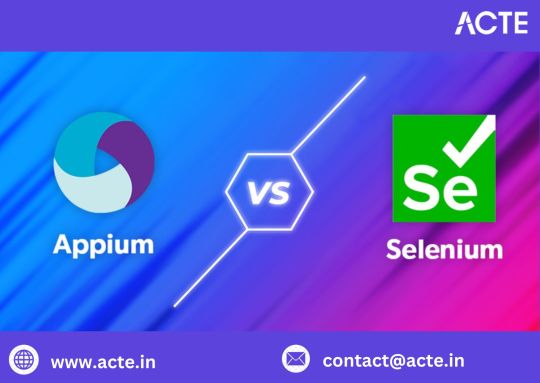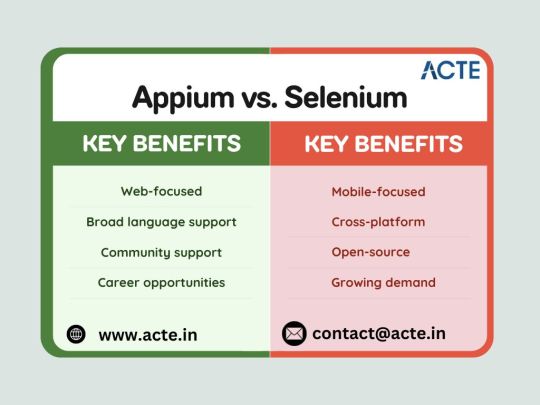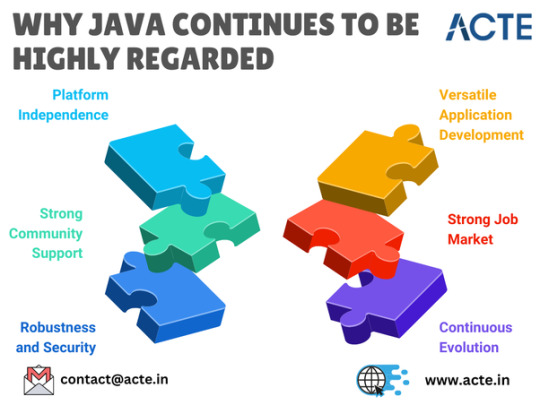#android course in pune
Explore tagged Tumblr posts
Text
Top 10 Career Options After Computer Engineering
Computer engineering has always been a popular career path for young people.This is primarily due to the fact that the field is divided into numerous specialisations, resulting in a plethora of career options for Computer Engineers. However, many career options available in Computer Engineering can be overwhelming. Many people are being perplexed in their job search for computer engineering jobs after completing their courses.
You are not alone in wondering what to do after engineering in computer science. It is true that this is a relatively fast-growing field with high demand. Many students are doubtful what to do after completing their B. Tech in CSE. There are numerous career options available regarding the degree and one can choose based on their interests and needs — some may be interested in high pay, while others may prefer a field that is close to their passion or allows them to explore their potential skills.

Career Options For Students After Completing Engineering In Computer Science
For a long time, Computer Engineering has been the primary career focus for young, bright, and ambitious people — and it has been in high demand due to the opportunities it provides for lucrative careers in the thriving IT field. Computer engineers have the option of choosing a career path from a wide range of specialisations because the field is so diverse. However, the numerous options in front of them frequently make it difficult to find the right path in an ocean of possibilities. If you feel the same way, keep reading. We have collected a list of potential career paths after computer engineering.
1.Software Developer:
A Software Developer is responsible for developing and maintaining systems that control devices and networks. He or she creates software to perform various tasks on computers, smartphones, and other devices. A Software Developer's job entails writing code, modifying and fixing errors, and upgrading interfaces in order to build software, adapt new hardware, or improve its performance.
Skills Required:
Expertise in programming languages such as C, C++, Java, Python, and others.Technical creativity and analytical thinking skills to solve software-related problems.Excellent communication and problem-solving abilities
Salary Description:
A Software Engineer's salary is determined by a variety of factors, including the candidate's skills, qualifications, and the size and structure of the employing organisation. The national average salary for a Software Developer in India is Rs. 520343 per year.
2.Data Analyst
Data analytics is a rapidly growing field that has attracted the attention of millions of professionals and thousands of communities. Data Analysts perform Data Mining, Data Inspection, Data Analysis, Predictive Modeling, and Report Generation to ensure that a company makes good business and technology decisions. The current surge has prompted many businesses, from small to large, to hire Data Analysts with in-depth knowledge to work on their problems and devise solutions in order to achieve commendable growth in terms of business and technology.
Skills Required:
Expertise in Statistical Programming Languages such as PythonStrong analytical abilities, decision-making abilities, SQL skills, and Database Knowledge
Salary Description:
Approximately Rs. 4.5LPA - 5LPA. Although it ranges from Rs. 3 LPA to Rs. 10 LPA, most firms offer a more static salary of Rs. 5 to Rs. 8 LPA.
3.Data Scientist
Data Scientists are the domain masters of Data Science. They are primarily interested in extracting value from complex data. Data Scientists gather information from a variety of external sources in addition to the company repository. They clean, organise, and process this data in order to extract hidden patterns within it. This helps them understand how the data at hand can help an organisation solve its current business challenges.
Data Scientists collaborate closely with Data Analysts to delve deep into data to uncover meaningful insights that can be used to solve real-world business problems. Data Scientists frequently take the lead (as a Project Manager would) in projects involving large amounts of complex business data. Data Scientists usually have a strong background in Data Science, Computer Science, Engineering, Mathematics, and Statistics.
Skills Required:
Analytical and Statistical CapabilitiesSolid mathematical knowledgeDevelopment and programming abilities
Salary Description:
Rs. 8 LPA. With years of experience, it ranges from Rs. 4 LPA to Rs. 20 LPA.
4.Cyber Security Specialist
Cyber security is based on extremely complex aspects and logical abilities. A Cyber Security Specialist is a professional who examines the security of various networks and the applications that are linked to these networks. A student must be familiar with computer networks and various cutting-edge techniques used in cyber security, as well as the constantly evolving algorithms. The job entails rigorous thought processes and strategies to ensure that the opposing viewpoint is considered and what action should be taken to solve the problem, and it employs Reverse Engineering.
Skills Required:
Excellent computer skillsThe ability to take a forensic approachExcellent analytical and problem-solving abilitiesExtensive knowledge of networks and security
Salary Description:
Rs. 7 – Rs. 10 LPA. The overall income ranges between Rs. 7 – Rs. 15 LPA.
5.Machine Learning Engineer
The ML Engineers are experts in designing and developing intelligent systems for use in a wide range of software systems and by businesses for a variety of purposes. They develop cutting-edge AI-powered systems based on machine learning and deep learning.
Skills Required:
Solid MathematicsCutting-edge ML Algorithms and NN-based AlgorithmsAbility to develop ML and DL Systems
Salary Description:
Rs. 7 LPA, ranges between Rs. 3 LPA to Rs. 20 LPA.
6.Computer Network Architect
Architects of computer networks design, develop, implement, and maintain networking and data transmission systems such as local area networks, wide area networks, extranets, and intranets. Both software and hardware are upgraded. They usually work with the company's Chief Technology Officer to forecast where new networks are needed the most.
Skills Required:
Clear knowledge of computer networksUnderstanding of digital securityAbility to maintain various network technologies and servers
Salary Description:
Rs. 15 LPA – Rs. 20 LPA, ranging between Rs. 10 LPA to Rs. 30 LPA.
7.System Administrator
System Administrators have existed in the IT industry for decades. They are in charge of administration, local infrastructure inspection, and system health maintenance. They train and guide the company's development team on how to use the system
Skills Required:
Knowledge of Computer SystemsExpert in NetworksDatabases and Web servicesA strong problem solver
Salary Description:
Rs. 15 LPA – Rs. 20 LPA, ranging between Rs. 10 LPA to Rs. 30 LPA.
8.QA/Test Automation Engineer
QA Automation Engineers have made strides in testing and automating various SDLC components. Testing processes are automated by QA Automation Engineers to make them faster and more efficient than manual testing methods. Quality assurance engineers are in charge of everything from unit testing to performance testing.
Skills Required:
Knowledge of Java and VBScriptStrong Analytical skillsBug fixing and testing protocolsAdvanced programming skills
Salary Description:
Rs. 4 LPA, with a range of Rs. 2 LPA to Rs. 9 LPA. Although the current trend may raise these salaries based on upgrading DevOps skills for the same position.
9. Full Stack Software Developer
Full Stack Developers work primarily with code and programming. They design and develop website blueprints in accordance with standard HTML/CSS practises and client specifications and demands. They must also keep accurate software documentation. Full Stack Developers must be skilled in both graphic design and computer programming because this role focuses on both user experience and functionality.
Skills Required:
Frontend Development: HTML, CSS, and so on Backend Development: JS, PHP, JAVA, Python, and other languages
Salary Description:
The average income ranges from Rs. 3-14 LPA.
10.Game Developer
Game Developers are in charge of creating, programming, and testing games. Their job entails creating a game's visual content as well as writing the code required to implement its features. Game Developers create game specifications and use those specifications to inform the game plan. They design the game's storyline, characters, activities, scoring system, and environment, breaking each component down into smaller parts that are assigned to different team members. These professionals write the code that provides the logic and allows the player to interact with the game using programming languages. After the game is released, game developers continue to improve it. Add-ons to the game that introduce new levels and functionality are examples of such enhancements.
Skills Required:
Strong programming, logical, and decision-making abilitiesKnowledge of programming languagesGraphics and animation expertise
Salary Description:
Rs. 5 LPA, ranging from Rs. 2 LPA to Rs. 20 LPA depending on development quality and seniority.
Conclusion:
So, these are the top ten career options after Computer Engineering that you should think about! All of these career paths are in high demand in the industry and thus pay a decent to very high yearly salary.
If you want to know more about which career path you should take after computer engineering based on your interests, talk to one of our career counsellors. Hope it helps you improve and move forward!
#web development#web design#ui ux design#android course in pune#web development course in pune#web design classes in pune#java classes in pune#software testing classes in pune
0 notes
Text

Reducing Development Costs with Full Stack Developers from India
In today’s competitive market, businesses are constantly seeking ways to reduce development costs without compromising on quality. One effective strategy is to hire full stack developers from India. This approach offers numerous advantages, from cost efficiency to versatile skill sets and favorable time zone differences. In this article, we will explore the benefits of outsourcing development work to India and how it can help your business thrive.
Cost Efficiency
One of the most compelling reasons to hire full stack developers from India is the significant cost savings. Here’s why:
Competitive Rates: Indian developers offer competitive rates that are often much lower than those in Western countries. This affordability is due to the lower cost of living in India, which translates to reduced project rates without sacrificing quality.
Substantial Savings: Businesses can save up to 60% on development costs by outsourcing to India. These savings can be reinvested into other critical areas of the business, fostering growth and innovation.
Versatility and Expertise
Indian developers are known for their versatility and expertise in various technologies and frameworks. Here are some key points to consider:
Multilingual Proficiency: Approximately 90% of Indian developers are proficient in multiple programming languages, enabling them to handle diverse projects and requirements efficiently.
Full Stack Capabilities: Full stack developers from India can manage both front-end and back-end tasks. This means you don’t need to hire separate specialists for different parts of your project, further reducing costs and streamlining the development process.
Technological Mastery: Indian developers are well-versed in the latest technologies and frameworks, ensuring that your project leverages cutting-edge solutions.
Time Zone Advantages
Outsourcing development to India also offers significant time zone benefits, enhancing productivity and project turnaround times:
24/7 Development Cycle: India’s time zone allows for round-the-clock development and support. While your team is off duty, your Indian counterparts can continue working on the project, ensuring continuous progress.
Faster Turnaround: This 24/7 work cycle can reduce development time by up to 30%, allowing you to bring products to market faster and respond quickly to customer needs.
Why Choose India?
India has established itself as a global leader in the IT and software development industry. Here are some reasons why businesses worldwide choose India for their development needs:
Large Talent Pool: India boasts a vast pool of skilled developers, ensuring you have access to top-notch talent for your projects.
Quality and Reliability: Indian developers are known for their commitment to quality and reliability, delivering projects that meet and often exceed client expectations.
Cultural Compatibility: Indian developers are familiar with Western business practices and communication styles, ensuring smooth collaboration and project execution.
Conclusion
Outsourcing development to full stack developers in India is a strategic move that can significantly reduce costs, enhance versatility, and improve project turnaround times. By leveraging the expertise and dedication of Indian developers, businesses can unlock new opportunities for growth and success.
If you’re looking to reduce development costs and enhance the quality of your projects, consider hiring full stack developers from India. Unlock the potential of Indian talent for your next project!
#software development#app development#custom software development#software development company#software developer#full stack developer#full stack java developer course in pune#game development#web app development#android app development#web development#custom app development#ios app development#blockchain development
0 notes
Text
Android Development course in pune
#android app development#android#development#app development#course#Android Development course in pune#course in pune
1 note
·
View note
Text

#besttraininginstitute#softwaretrainingpune#software testing#uiuxdesigntraining#angulajs classes in pune#web design career#web development training#websitedesign#websitedevelopment#nodejs#java courses in pune#angular js development company#codeshiptechnologies#ios certification pune#ios classes in pune#ios training institute#mobileappcoursesin pune#mobile app developing pune#ios app development course#android training institutes in pune#android training institute#python
0 notes
Text
Python Training Course in Ahmedabad
We are one of the most reputed Training institutes in Ahmedabad, Pune & Navi Mumbai. We are providing, Live Project Training in All Programming Languages C, PHP, Java, Android, Python, Data Science, Software Testing, & Graphic Designing. We are Providing Training classes in with Live Projects.
2 notes
·
View notes
Text
What Is A Responsive Website Designing And Why Is It Important To Have One
If your website doesn’t perfectly work on all types of devices, you’re surely wasting some of your money spent on your website design. A responsive web design is a type of fluid layout that adjust as per the screen size and ratio of the device, resulting in a unified web presence that works perfectly on every types of devices but you can reach your customers through computers, phones, tablets irrespective of browsers
Responsive web design is an approach in web development that causes dynamic changes in the way a website appears in the browser, depending on the size and orientation screen of the device being used to view the website.
Today, almost every new customer wants a mobile version of their website. It’s practically impossible to have one website designed for the personal computers, another for the iPhone, the iPad, android. So, responsive design addresses this problem and fits in all screen sizes and resolutions and makes a website view compatible to them. It's believed that in the coming years, we’ll likely need to have a web design fits in a number of additional devices that are invented.
It's another thing that a responsive website design can deliver the best user experience across all devices and has many other plus points. If one is still unsure as to whether they should choose to go responsive then the big answer can be yes. In this article we will include some of the major advantages of responsive web design that may help forming your decision.
Benefits of Responsive Web Design
Appeal to a broader range range of audiences:Your viewers will be able to access your website from a range of different devices in all resolutions and sizes, and of course in all ratios. Responsive design will accommodate them irrespective of size of the screen, big, medium or small.
Convenience to monitor analytics:If you have different websites for different devices that means you have to keep an eye on each analytics. A responsive website is just one website, which essntially means your analytics is going to be just one source of information being displayed in one screen only.
Low on maintenance:Further, when you have multiple websites for multiple devices, it means at the time of updation or modification, you will need to make changes across all the websites. With a responsive website, you can be at peace as you will only have to make the change once, thereby saving time, efforts and money as well.
More powers for your SEO campaigns:Marketing your business is obviously the most crucial for any business to be found in the web pages. And SEO is one of the most effective ways to drive traffic to your website. And, Google now said to value responsive websites, in order to improve their search results for mobile users, so they rank higher on the search engines results.
Conclusions:
As the competition in the market is increasing day by day it is paramount to stay ahead of your competitors in business by following practices that are less costly, less vulnerable and more profitable to your business. While having a website is the quinessential to your business so that your target audiences can view you. And having a responsive website definitely stands out to be beneficial for all business enterprises as it builds trust among the audiencces and opens new doors for more opportunities. Get in touch with OneNet Solutions Private Limited a leading responsive wesite design company in pune that is also regarded among best companies to provide web designing and development services!
3 notes
·
View notes
Text
Java: A Deep Dive into Its Applications and Uses
Java: A Deep Dive into Its Applications and Uses
Java is one of the most widely used programming languages in the world, known for its portability, scalability, and versatility. Initially designed for embedded systems and small devices, Java has grown to become the backbone of numerous applications across different industries. This blog explores the various applications and uses of Java, highlighting why it remains a top choice for developers worldwide. Enrolling in a Java Course in Pune significantly enhances one’s ability to leverage Java’s capabilities effectively.

1. Web Development
Java is extensively used in web development, particularly for building dynamic, large-scale websites and web applications. Frameworks like Spring, Struts, and JSF (JavaServer Faces) are popular choices for building robust, secure, and scalable web applications. Java's platform independence and its ability to handle large volumes of data make it perfect for enterprise-level web applications.
Java allows developers to build everything from basic e-commerce websites to complex content management systems and social media platforms. Using Java for web development ensures that your application can run on any operating system, offering both flexibility and convenience.
2. Mobile Applications (Android)
Java is the primary language for developing Android apps, making it a critical tool for mobile app developers. With Android being the most widely used mobile operating system globally, the demand for skilled Java developers in the mobile development space is consistently high.
The Android SDK (Software Development Kit) is built around Java, and most Android apps are written in Java or Kotlin (which is interoperable with Java). Whether you're building a simple mobile app or a feature-rich enterprise mobile solution, Java provides the foundation for developing high-performance, scalable Android applications.
3. Enterprise Applications
Java has long been the go-to language for large-scale enterprise applications. Its scalability, reliability, and security make it a perfect fit for building complex systems like Customer Relationship Management (CRM) software, Enterprise Resource Planning (ERP) systems, financial applications, and more.
The Spring framework is widely used for creating enterprise-level applications in Java, offering tools for dependency injection, transaction management, and security. Additionally, Java’s compatibility with other enterprise tools and databases, such as Oracle and MySQL, enhances its appeal in the business world.
4. Big Data Technologies
In the world of big data, Java plays a crucial role. Its ability to handle large datasets and its high-performance capabilities make it an ideal language for developing big data applications. Java is the language of choice for working with popular big data technologies like Apache Hadoop and Apache Spark. These frameworks are used for processing and analyzing massive amounts of data, and they leverage Java for writing jobs, handling data processing tasks, and managing cluster environments.
Java’s robust ecosystem and tools also make it easier to implement machine learning algorithms and integrate with other data processing technologies, making it a key player in the data science and analytics industries.
5. Cloud-Based Applications
The rise of cloud computing has further solidified Java's importance in modern software development. Java offers powerful tools for building cloud-based applications that can run on popular cloud platforms like Amazon Web Services (AWS), Microsoft Azure, and Google Cloud Platform (GCP). Java’s scalability, reliability, and secure environment make it well-suited for developing applications that need to be deployed on the cloud. Consider enrolling in the Java Online Certification Training to fully harness Java’s capabilities and become proficient in web automation.

Java also integrates well with cloud-native technologies such as Docker and Kubernetes, allowing developers to build microservices and containerized applications. With Java, developers can create scalable, distributed systems that can grow with the demands of modern businesses.
6. Embedded Systems and IoT
Java’s versatility extends beyond traditional computing to embedded systems and Internet of Things (IoT) devices. While other languages like C or C++ are often used for low-level programming, Java’s portability and ease of use make it a great choice for embedded systems, especially when you need to scale or interface with other technologies.
Java provides frameworks such as Java ME Embedded and JavaFX for building IoT applications, allowing developers to create solutions that work on a wide variety of connected devices. Java’s platform independence makes it ideal for IoT environments, where devices from various manufacturers need to work together seamlessly.
7. Financial Services and Trading Systems
Java has a long history of being used in the financial industry. Its robustness, security features, and ability to handle complex calculations make it an excellent choice for developing trading platforms, risk management systems, and financial analytics tools. Java’s stability and reliability are critical in the finance sector, where downtime can result in significant losses.
Java’s real-time processing capabilities also make it suitable for developing high-frequency trading systems, where milliseconds can make the difference. Additionally, its vast ecosystem of libraries and frameworks supports secure transactions and integrations with banking systems, making it indispensable for the financial services industry.
8. Scientific and Research Applications
Java’s ability to handle complex mathematical calculations, along with its stability, has made it a popular language in scientific computing. Whether it’s used for data analysis, simulation, or modeling, Java provides a reliable foundation for building applications that require high precision and performance.
Java is used in fields such as bioinformatics, physics simulations, and weather modeling. Its object-oriented design makes it easier to manage and structure the complex data involved in scientific research, while its wide range of available libraries supports various scientific computations.
9. Game Development
Although not as widely known for game development as languages like C++ or C#, Java is still a powerful language for building 2D and 3D games. Its portability, ease of use, and wide array of libraries make it suitable for developing both desktop and mobile games.
The LibGDX framework, for example, allows developers to create cross-platform games using Java. Game engines built on Java also allow developers to take advantage of Java's object-oriented features, making it easier to structure complex game logic and interactions.
10. Artificial Intelligence and Machine Learning
In recent years, Java has also become a popular choice for developing artificial intelligence (AI) and machine learning (ML) applications. Libraries like Deeplearning4j, Weka, and MOA are widely used for building intelligent systems, from neural networks to natural language processing (NLP) and computer vision.
Java's performance, scalability, and large ecosystem make it an ideal candidate for developing AI/ML applications that need to process large datasets or run in production environments. Additionally, Java's integration with other big data and cloud technologies enhances its capabilities in the AI and ML domains.
Conclusion
Java's versatility and robustness have made it a cornerstone of modern software development. From web applications and mobile development to cloud solutions, big data, and embedded systems, Java plays a vital role in numerous industries. Its cross-platform capabilities, scalability, security features, and extensive libraries ensure that Java remains a powerful choice for developers. Whether you're working on a small project or a large enterprise system, Java provides the tools and features needed to build scalable, reliable, and secure applications.
0 notes
Text
Appium or Selenium: Choose the Right Path for Your Testing Career
If you're entering the world of software testing, the decision to specialize in a tool can shape your career trajectory. Two major players in the automation testing field are Appium and Selenium. If you want to advance your career at the Selenium Course in Pune, you need to take a systematic approach and join up for a course that best suits your interests and will greatly expand your learning path. While both are widely used, they serve different purposes. So, how do you choose the right one for your career? Let’s break it down.

Why Automation Testing Is Crucial
Automation testing has revolutionized software quality assurance by reducing testing time and improving accuracy. Whether it’s testing a shopping cart on a website or ensuring a mobile app functions seamlessly across devices, automation ensures that software meets user expectations. For those looking to excel in Selenium, Selenium Online Course is highly suggested. Look for classes that align with your preferred programming language and learning approach.
To thrive in this field, you’ll need the right tools—and that’s where the Appium vs. Selenium debate begins.
What Is Selenium?
Selenium is the go-to tool for automating web applications. It allows testers to simulate user interactions on web browsers like Chrome, Firefox, Safari, and Edge. From login forms to complex workflows, Selenium automates repetitive tasks and ensures websites run smoothly across different browsers.
Key Benefits of Selenium:
Focus: Designed for web testing.
Cross-browser compatibility: Works seamlessly across multiple browsers.
Programming flexibility: Supports popular languages like Python, Java, and C#.
Mature ecosystem: Established with extensive community support and resources.
What Is Appium?
Appium is built for automating mobile applications on Android, iOS, and hybrid platforms. It allows testers to write one script that works across multiple devices, ensuring consistent app behavior. Appium also supports features like touch gestures and device-specific actions.
Key Benefits of Appium:
Focus: Specialized for mobile app testing.
Cross-platform: Automates Android and iOS apps using the same codebase.
Based on Selenium: If you know Selenium, learning Appium becomes easier.
Growing demand: Mobile apps are on the rise, making Appium a sought-after skill.
How to Choose Between Appium and Selenium
1. Web vs. Mobile Focus
Choose Selenium if you want to test websites and browser-based applications.
Choose Appium if you’re passionate about testing mobile apps.
2. Market Demand
Selenium is more established and widely used, especially in organizations with complex web systems.
Appium is catching up fast as mobile app usage grows globally.
3. Career Goals
Long-term flexibility: Start with Selenium to build a strong foundation, as Appium is an extension of it.
Mobile specialization: If you see yourself focused on mobile platforms, go straight to Appium.
4. Ease of Transition
Selenium is easier for beginners, with a simpler setup and more learning resources.
Appium requires an understanding of mobile-specific challenges like device configurations and gestures.
Why Not Both?
You don’t have to limit yourself to one. Many testers start with Selenium and later add Appium to their skillset. This approach broadens your opportunities, allowing you to work on diverse projects in both web and mobile domains.
Learning Path for Appium and Selenium
Start with Selenium:
Learn the basics of web automation testing.
Familiarize yourself with programming languages like Java or Python.
Practice automating browser-based tasks.
Transition to Appium:
Expand your skills to mobile testing.
Learn how to set up mobile environments (emulators, real devices).
Master device-specific actions like swiping, tapping, and multitouch gestures.
Future of Automation Testing
The future is a mix of web and mobile testing. Companies need testers who can handle both platforms. Learning Selenium gives you a strong starting point, while mastering Appium ensures you stay relevant in the mobile-first era.

Start with Selenium if you’re new to automation testing and want to focus on web applications.
Move to Appium if you want to specialize in mobile app testing or diversify your skills.
Ultimately, both tools are invaluable in a tester’s toolkit. By mastering both, you’ll position yourself as a versatile professional ready for any challenge in the fast-evolving world of software testing.
The choice is yours—pick your path and start building a rewarding career in automation testing today!
0 notes
Text
Why Codigo's Android Development Course Pune is the Best Choice for Aspiring Developers
In today's fast-paced tech landscape, learning app development can unlock a world of opportunities. Aspiring developers need comprehensive training that combines practical skills with industry knowledge, and that's where Codigo’s Android Development Course Pune stands out. If you’re passionate about building apps and want to turn your ideas into reality, Codigo offers one of the best learning experiences available in Pune.
Comprehensive Android App Development Training Pune
At Codigo, the Android App Development Training Pune is designed by industry experts who understand the demands of modern app development. The 12-week App Development Bootcamp Pune offers a deep dive into Android programming, helping you build a solid foundation in coding. From understanding the basics of Java and Kotlin to developing complex mobile applications, the course covers everything you need to become proficient in Android development.
Hands-On Learning with Project-Based Training
One of the unique features of this Mobile App Development Course is its focus on project-based learning. Students work on real-world projects, gaining practical experience in developing apps that solve actual problems. This hands-on approach is perfect for anyone serious about breaking into the app development industry. By the end of the course, you'll not only have built several apps but also be prepared to publish your own app on the Google Play Store.
Personalized Mentorship and Live Sessions
The Android Development Course Pune at Codigo offers live Android coding classes that ensure interactive learning. You'll receive personalized mentoring from expert instructors who are there to guide you through challenges and help clarify doubts in real-time. This one-on-one support ensures that students of all skill levels feel confident as they progress through the course.
Industry-Recognized App Development Certification Pune
Upon successful completion of the Pune Android Programming Course, students receive a highly valued App Development Certification Pune. This certification is recognized across the industry and will give you a competitive edge when applying for jobs or freelance projects. With this credential in hand, you'll be able to showcase your skills to potential employers and clients, proving that you have what it takes to succeed in Android app development.
Kickstart Your Career with Codigo
By enrolling in Codigo’s Android Development Course Pune, you're not just learning how to code—you’re learning how to think like a developer. The course prepares you for the tech industry with the right skills, experience, and credentials. Whether you’re a beginner or looking to upgrade your programming skills, Codigo’s course is the perfect platform to launch your career in app development.
In conclusion, Codigo’s Android Development Course Pune is the best choice for aspiring developers because it offers a comprehensive, hands-on learning experience combined with personalized mentorship and an industry-recognized certification. This is the stepping stone you need to succeed in the world of mobile app development.
If you're ready to take the leap, check out Codigo’s Android App Development Training Pune and start your journey to becoming a skilled app developer today!
0 notes
Text
Why Learning Java in Pune is a Smart Career Move
In today’s fast-paced technological landscape, programming skills are highly sought after, and Java remains one of the most popular programming languages globally. If you’re considering a career in software development, enrolling in Java courses in Pune can be a strategic move. Pune, often referred to as the "Oxford of the East," is a thriving hub for education and technology. Here are several compelling reasons why learning Java in Pune is a smart career decision.
1. Thriving Tech Ecosystem
Pune boasts a rapidly growing IT industry, with numerous tech companies, startups, and multinational corporations setting up operations in the city. The presence of companies like Tata Technologies, Infosys, Wipro, and Cognizant offers a robust job market for Java developers. By taking Java courses in Pune, you place yourself in the heart of this ecosystem, making it easier to network and find job opportunities.
2. Quality Educational Institutions
Pune is home to several reputable institutions that offer high-quality Java courses. Whether you prefer a traditional classroom setting or online learning, there are numerous options to choose from. Institutes like the National Institute of Management, MIT School of Distance Education, and Aptech Computer Education provide well-structured Java programs that cater to beginners and experienced developers alike.
3. Experienced Faculty and Industry Professionals
Many educational institutions in Pune employ experienced faculty members who have extensive knowledge of Java and its applications in the industry. Learning from seasoned professionals through Java courses in Pune can give you insights into real-world programming challenges and best practices. Additionally, many courses are designed in collaboration with industry experts, ensuring the curriculum is aligned with current market demands.
4. Strong Community Support
The Java programming community in Pune is vibrant and supportive. With various meetups, workshops, and coding boot camps regularly organized, you can connect with like-minded individuals and industry veterans. Engaging with the community through Java courses in Pune not only enhances your learning experience but also opens doors to potential job opportunities through networking.
5. Diverse Job Opportunities
Java is a versatile language used in various applications, from web development to mobile app creation and enterprise solutions. By enrolling in Java courses in Pune, you position yourself for a wide range of job roles, including:
Java Developer
Software Engineer
Application Developer
Backend Developer
Data Scientist (with Java frameworks)
This diversity ensures that you can explore different paths in your career, enhancing your employability.
6. Attractive Salary Packages
Java developers are among the most well-compensated professionals in the tech industry. According to industry reports, entry-level Java developers in Pune can expect competitive salaries, which only increase with experience and expertise. By investing in Java courses in Pune and skill development, you position yourself for lucrative job offers.
7. Gateway to Advanced Technologies
Learning Java can serve as a stepping stone to explore advanced technologies and frameworks. Java is integral to many modern technologies, including big data (Hadoop), cloud computing, and Android development. By mastering Java through dedicated Java courses in Pune, you can branch into these in-demand fields, enhancing your career prospects even further.
8. Flexible Learning Options
Pune offers a variety of learning formats, from full-time courses to part-time and online programs. This flexibility allows you to choose Java courses in Pune that fit your schedule and lifestyle, making it easier to balance your education with other commitments.
Conclusion
In conclusion, learning Java in Pune through well-structured Java courses is a smart career move for anyone looking to enter the tech industry or advance their programming skills. With a thriving tech ecosystem, quality educational institutions, experienced faculty, and strong community support, Pune provides an ideal environment for budding Java developers. By investing in your education and skill development through Java courses in Pune, you can unlock numerous career opportunities and set yourself on a path to success in the dynamic world of technology. So, take the leap and start your journey in Java today!
0 notes
Text
Experience intensive Java learning in Pune with Java Institute
Intensive Learning Experience in Pune
In the vibrant city of Pune, Java classes in pune stands as a beacon for aspiring software developers seeking to master Java programming. Renowned for its intensive learning experiences and expert-led courses, Java Institute offers a comprehensive education that prepares students for the dynamic world of software development. Whether you're a beginner or an experienced programmer, our institute provides a structured and supportive environment to enhance your skills and advance your career.
About Our Services
Comprehensive Java Courses
Our curriculum is designed to cover the entire spectrum of Java programming, from fundamental concepts to advanced techniques. We offer courses tailored to different skill levels, ensuring that every student can find a program that meets their needs.
Specialized Training Programs
In addition to our general Java courses, we offer specialized training in areas such as:
Java Web Development: Focusing on frameworks like Spring and Hibernate.
Mobile App Development: Using Java for Android applications.
Enterprise Java: Covering Java EE for large-scale applications.
Hands-On Projects
At Java Institute, we believe in learning by doing. Our courses include hands-on projects that allow students to apply what they've learned in real-world scenarios, from building web applications to developing mobile apps.
Certification Preparation
We provide comprehensive preparation for various Java certification exams, such as the Oracle Certified Professional (OCP) Java SE Programmer. Our training includes mock exams, study materials, and personalized guidance to help students achieve certification success.
Placement Assistance
We offer dedicated placement support to help our students transition from learning to earning. Our placement cell provides resume building, interview preparation, and connects students with leading tech companies in the industry.
0 notes
Text
Java: The Timeless Technology - Why It Remains a Developer Darling
Java has established itself as a cornerstone in the realm of programming languages, maintaining its relevance and popularity for over two decades. For individuals who want to work in the sector, a respectable Top Java Course in Pune can give them the skills and information they need to succeed in this fast-paced atmosphere.

With its extensive applications and robust community, Java remains a favored choice among developers across various sectors. In this blog, we’ll delve into the compelling reasons why Java continues to be a top contender in the tech industry.
1. Platform Independence: A Key Advantage
One of Java's standout features is its platform independence, encapsulated in the mantra "write once, run anywhere." This means that Java code can be executed on any device equipped with a Java Virtual Machine (JVM), regardless of the underlying operating system. This capability is crucial for developers looking to create cross-platform applications, allowing them to write code that runs seamlessly on Windows, macOS, and Linux environments. For businesses, this translates to reduced development costs and time since there is no need to maintain separate codebases for different platforms.
2. Strong Community Support: A Vital Resource
Java is backed by a vast and vibrant community of developers who contribute to its ongoing evolution and support. This robust community fosters a rich ecosystem of resources, libraries, and frameworks that can significantly streamline development tasks. From forums and user groups to comprehensive documentation and tutorials, developers can easily find assistance and share knowledge. Notably, popular frameworks like Spring and Hibernate have emerged from this collaborative environment, providing developers with powerful tools to build scalable and efficient applications.
3. Robustness and Security: A Foundation for Trust
Java's design emphasizes robustness and security, making it an ideal choice for developing reliable applications. The language incorporates strong type-checking mechanisms that help prevent type-related errors during runtime, while its automatic garbage collection minimizes the risk of memory leaks and enhances application stability. Moreover, Java's built-in security features, such as the security manager and bytecode verification, protect applications from various security threats and vulnerabilities. This focus on stability and security is especially critical in industries such as finance, healthcare, and government, where reliability is paramount.
4. Versatile Application Development: A Wide Range of Use Cases
Java's versatility enables it to be employed across diverse domains and application types. Whether developing enterprise-level applications using robust frameworks like Spring or creating mobile applications for Android devices, Java is well-suited for a broad spectrum of development projects. Its object-oriented programming paradigm promotes code reusability and maintainability, making it easier to manage complex systems. Additionally, Java is increasingly utilized in emerging fields such as big data and cloud computing, empowering developers to remain relevant in a rapidly changing technological landscape.
Consider enrolling in the Java Online Certification Training to fully harness Java's capabilities and become proficient in web automation.

5. Strong Job Market: A Stable Career Choice
The demand for Java developers is consistently high, reflecting the language's pivotal role in the software industry. Many organizations depend on Java for their mission-critical applications and systems, resulting in a steady influx of job opportunities for skilled developers. Industry reports frequently rank Java among the top programming languages in job postings, making it a strategic investment for anyone seeking to enter or advance in the tech field. Furthermore, Java developers often enjoy competitive salaries and promising career growth prospects, underscoring the language's enduring value.
6. Continuous Evolution: Adapting to Modern Needs
Java’s commitment to continuous evolution is critical in today’s fast-paced tech environment. The language undergoes regular updates and releases that introduce new features and enhancements, ensuring its relevance. The Java Community Process (JCP) actively involves developers in the decision-making process, aligning the language's evolution with industry trends and user needs. Recent advancements, such as lambda expressions, the introduction of the module system, and performance improvements, demonstrate Java's adaptability to modern programming paradigms, keeping it a competitive choice for developers.
7. Rich Ecosystem of Frameworks and Tools
The Java ecosystem is rich with frameworks and tools that facilitate and accelerate development processes. Prominent frameworks like Spring, Hibernate, and JavaServer Faces (JSF) offer powerful solutions for building web applications, managing databases, and developing robust backend systems. Additionally, integrated development environments (IDEs) such as IntelliJ IDEA, Eclipse, and NetBeans provide developers with advanced features for coding, debugging, and testing, ultimately enhancing productivity and the quality of code produced.
8. Abundant Learning Resources: A Developer’s Playground
Another significant advantage of Java is the vast array of learning resources available to developers. From comprehensive online courses and interactive tutorials to textbooks and coding bootcamps, aspiring developers have access to an extensive range of materials to facilitate their learning journey. Many educational platforms also offer certification programs that further enhance a developer's credentials, making them more appealing to potential employers and boosting their career prospects.
9. Strong Performance and Scalability
Java is known for its robust performance capabilities, making it suitable for high-traffic applications and large-scale systems. The JVM optimizes the execution of Java applications, allowing for efficient memory management and execution speed. This performance reliability is essential for enterprises that require scalable solutions to accommodate growing user bases and increasing data loads.
10. Integration Capabilities: A Seamless Connection
Java excels in integrating with other technologies and systems, making it an excellent choice for building complex applications. Its interoperability with various programming languages, databases, and platforms allows developers to create comprehensive solutions that leverage existing technologies. This capability is particularly beneficial in enterprise environments where different systems need to work together seamlessly.
Conclusion
In summary, Java remains a premier choice for developers due to its enduring reliability, versatility, and robust community support. Whether you’re just starting your programming journey or looking to advance your skills further, investing in Java can open numerous doors in the tech industry. Its consistent relevance, strong job market, extensive ecosystem, and commitment to innovation make Java a powerful ally for developers eager to tackle the challenges of modern software development. With Java, the possibilities are vast, and the future looks bright for anyone willing to embrace this timeless programming language.
0 notes
Text
Python vs Java vs C++: Choosing Your Programming Weapon
When diving into the world of programming, selecting the appropriate language can greatly influence the success and efficiency of your project. Python, Java, and C++ are three prominent programming languages, each with distinct characteristics and uses. This blog will explore these languages in depth, focusing on user-friendliness, performance, versatility, and common applications. Considering the kind support of Learn Python Course in Pune, Whatever your level of experience or reason for switching from another programming language, learning Python gets much more fun.

User-Friendliness and Learning Curve
Python: Python stands out for its simplicity and readability. Its clear and concise syntax makes it a popular choice for beginners. Python enables developers to write less code to achieve the same functionality as Java or C++, resulting in quicker development and easier debugging.
Java: Java’s syntax is more verbose and rigid compared to Python. This can lead to clearer and more maintainable code but also means more extensive code writing. Java is statically typed, which can catch errors at compile time but requires more boilerplate code.
C++: C++ is known for its complexity and steep learning curve. It offers low-level memory management capabilities, which are powerful but challenging for beginners. Developers need to manually manage memory, increasing the risk of errors like memory leaks but allowing for highly efficient programs.
Performance Considerations
Python: As an interpreted language, Python generally runs slower than compiled languages such as Java and C++. Python’s high-level nature abstracts many hardware details, prioritizing ease of use over performance.
Java: Java is compiled into bytecode and executed on the Java Virtual Machine (JVM), providing relatively high performance and cross-platform compatibility. JVM’s Just-In-Time (JIT) compilation optimizes Java program execution at runtime, enhancing performance.
C++: C++ is a fully compiled language, directly translating to machine code. This results in superior performance and efficiency, essential for performance-critical applications. C++ offers low-level system access, enabling fine-tuned performance optimizations.
Versatility and Use Cases
Python: Python is highly versatile, used across various domains. In web development, frameworks like Django and Flask are prevalent. Python’s extensive library ecosystem (e.g., NumPy, Pandas, TensorFlow) makes it a favorite for data science and machine learning. Its simplicity and flexibility also make it ideal for scripting and automation. Enrolling in the Best Python Certification Online can help people realise Python’s full potential and gain a deeper understanding of its complexities.

Java: Java is widely utilized in large-scale enterprise applications due to its robustness, scalability, and comprehensive ecosystem. It’s a primary language for Android app development and, along with the Spring framework, is used extensively for building complex web applications.
C++: C++ excels in developing operating systems, drivers, and embedded systems, thanks to its low-level capabilities. High-performance games often rely on C++ due to its ability to handle complex graphics and real-time computations. It’s also preferred for applications requiring high performance, such as financial trading systems, simulations, and CAD software.
Community and Ecosystem Support
Python: Python has a vibrant community that continuously enhances its development. This results in abundant resources, libraries, and frameworks. The community offers extensive documentation, tutorials, and forums, simplifying learning and troubleshooting for beginners.
Java: Java’s mature ecosystem includes a vast array of libraries, frameworks, and tools. It’s well-supported by major tech companies and has strong corporate backing, ensuring its continued development and relevance.
C++: C++ boasts a robust community of developers and a rich set of libraries and tools. The C++ Standard Library provides efficient and reliable algorithms and data structures, supporting extensive application development.
Final Thoughts
The choice between Python, Java, and C++ hinges on the specific needs of your project and the expertise of your development team.
Python shines in ease of use and rapid development, making it ideal for beginners and applications in data science, web development, and automation.
Java strikes a balance between performance and readability, suitable for enterprise applications and Android development.
C++ offers unmatched performance and low-level control, making it the go-to language for system programming, game development, and high-efficiency applications.
Understanding the strengths of each language helps in making informed decisions tailored to your project requirements and developer expertise.
#python course#python training#python#python programming#python online training#python online course
0 notes
Text
Radiant IT Services Achieves ISO Certification for Unmatched Quality Assurance
In a significant milestone, Radiant IT Services Pvt Ltd is thrilled to announce its recent attainment of ISO certification, underscoring the company's unwavering commitment to excellence in the provision of IT services. This prestigious recognition is a testament to Radiant IT Services' dedication to upholding the highest standards of quality, efficiency, and customer satisfaction.
Radiant IT Services and ISO Certification: A Commitment to Excellence
Receiving ISO certification is a reflection of Radiant IT Services' continuous pursuit of excellence in the rapidly evolving landscape of technology. The certification process involved a comprehensive evaluation of our internal processes, ensuring alignment with international standards and best practices. This achievement not only signifies our commitment to quality but also underscores our readiness to meet the ever-growing demands of the IT industry.
ISO certification provides our clients with the assurance that Radiant IT Services adheres to stringent quality control measures. It validates our proficiency in delivering IT solutions that not only meet but exceed industry benchmarks. This recognition stands as a testament to our dedication to providing reliable, innovative, and client-centric services.
About Radiant IT Services: Shaping Proficient Technologists
At Radiant IT Services, we recognize that proficiency in technology is no longer a choice but a necessity in today's context. Our unique approach to teaching, training, and engaging with technology sets us apart. We offer comprehensive courses that blend hands-on practice with practical projects, ensuring that our candidates gain the skills needed to thrive in the dynamic IT landscape.
What distinguishes us is our strategic partnerships with various IT companies in Pune and beyond. These partnerships enable our candidates to work on real-world projects, acquiring practical knowledge sought after by the market. We take pride in offering courses with a placement guarantee, providing a seamless transition for our candidates from education to the professional realm. Whether through online or offline classes, we are committed to facilitating an enriching learning experience.
Beyond Education: Radiant IT Services' Comprehensive IT Services Portfolio
Our commitment to technology excellence extends beyond education to a comprehensive range of IT services. Radiant IT Services is your trusted partner for:
1. Web Development
We have helped many startups and local businesses with website development. We develop it keeping customer requirements in mind and how interactive it is for a user. With our experienced team of web developers, we have created services-based, and product-based sites, sites for NGOs, built E-commerce sites, and for many more categories.
2. ERP and Billing Software Development
Streamline business processes with our customized Enterprise Resource Planning solutions and efficient billing software. We develop both software considering latest technology and security concerns.
3. CRM Software Development
Enhance your customer relationships and optimize business operations with Radiant’s cutting-edge Customer Relationship Management solutions. Software that will reduce your time and stress. An efficient solution for your enterprise.
4. Android App Development
We create innovative and user-friendly mobile applications to meet the demands of the ever-growing mobile user base. We have more than 10L active users for our clients. We manage and update as per requirement.
5. Digital Marketing Services
Elevating your online presence through strategic PPC campaigns, content marketing, search engine optimization (SEO), and social media marketing (SMM). Our DM services will help increase your revenue. We have helped many businesses to 2X their growth.
Our services are driven by a passion for innovation and a commitment to delivering solutions that empower businesses in the digital age.

In conclusion, Radiant IT Services Pvt Ltd's attainment of ISO certification signifies a pivotal moment in our journey toward excellence. It reinforces our promise to deliver unparalleled quality in both education and IT services. As we celebrate this achievement, we remain dedicated to shaping proficient technologists and providing cutting-edge IT solutions that propel businesses forward.
0 notes
Text
Android App Development In Pune

Embark on a dynamic journey in Android app development in Pune.Our expert-led courses offer hands-on training, ensuring you master the intricacies of Android app development. From coding to deployment, we cover the entire development lifecycle, empowering you to create robust and innovative Android applications. Elevate your skills and join the thriving community of Android developers in Pune.
#AppDevelopment#MobileAppCompany#TechInnovation#MobileTech#AppDesigners#CodeMasters#DigitalSolutions#InnovationHub#AppDevExperts#MobileAppCreators
0 notes
Text
Excel In Java Programming
Java is a powerful and versatile programming language widely used in various domains, from web development to mobile app development. If you're looking to enhance your Java skills and embark on a rewarding career in software development, Technolearn Training Institute offers comprehensive Java classes in Swargate to help you achieve your goals.
At Technolearn Training Institute, the Java classes in Swargate are designed to provide a solid foundation in Java programming. The curriculum covers essential topics such as syntax, data types, control structures, object-oriented programming, and exception handling. Students will also learn how to work with Java libraries and frameworks to develop robust and scalable applications.
The Java classes in Swargate at Technolearn Training Institute are delivered by experienced instructors who have extensive industry experience. They guide students through hands-on coding exercises, real-world projects, and practical examples to ensure a deep understanding of Java concepts and best practices.
With state-of-the-art facilities and well-equipped computer labs, Technolearn Training Institute provides an ideal learning environment for Java enthusiasts. Students have access to the latest software and development tools to practice their coding skills and explore Java's vast ecosystem.
By enrolling in Java classes in Swargate at Technolearn Training Institute, you gain valuable knowledge and skills that are highly sought after in the software development industry. Whether you aim to become a Java developer, work on enterprise applications, or develop Android apps, the comprehensive Java course equips you with the necessary expertise to excel in your chosen field.
Take the first step towards a successful career in Java programming by joining Technolearn Training Institute in Pune. The institute's commitment to providing quality education, industry-relevant curriculum, and experienced faculty ensures that you receive the best Java training and preparation for real-world challenges.
Enrol today and unlock your potential as a Java programmer with Technolearn Training Institute in Pune.
#pune#offlineclasses#onlineclasses#python#coding#full stack engineer#fullstackdevelopment#software#software testing#softwaretesters#java coding#javascript#java software development#javaprogramming#java development company#coder#developer#html
1 note
·
View note